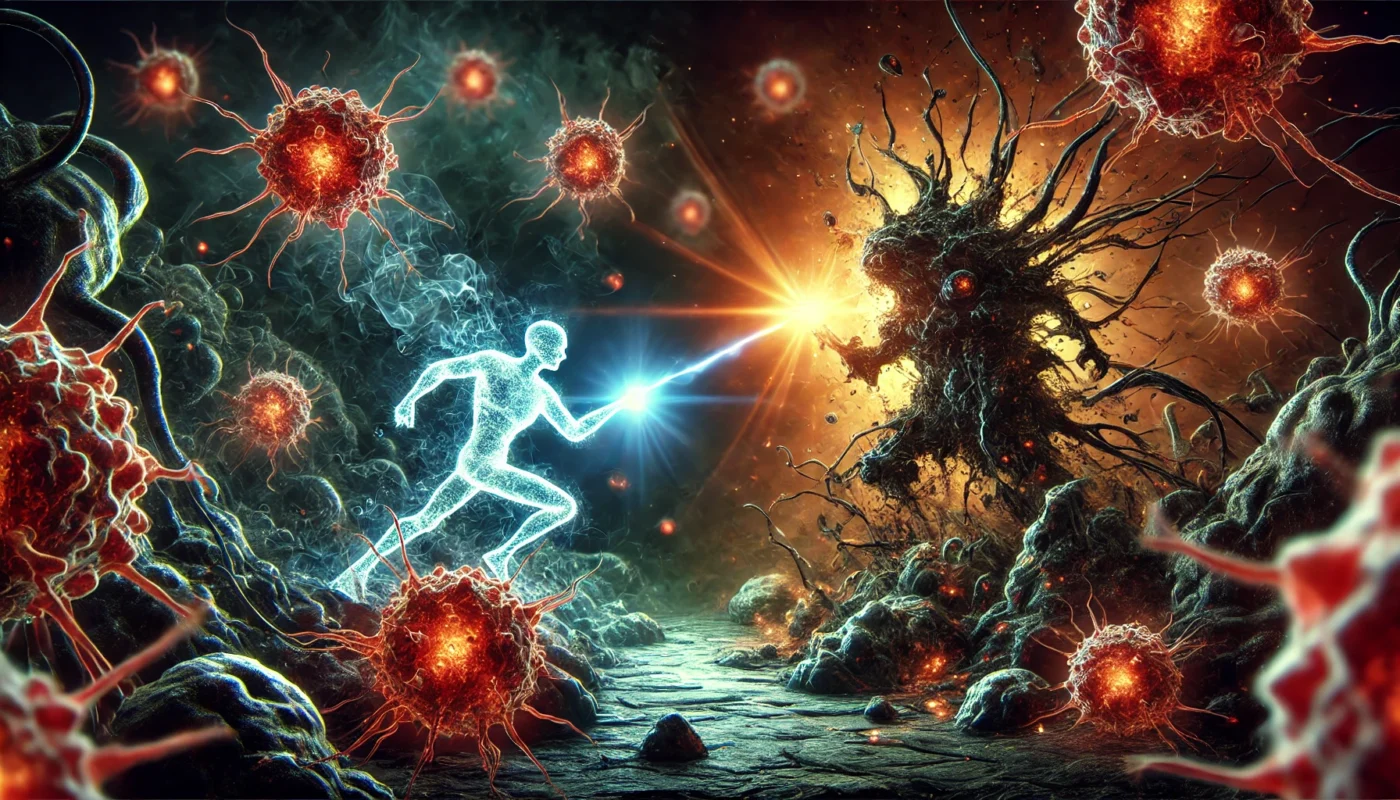Cancer treatments, such as chemotherapy and radiation therapy, often weaken the immune system, leaving patients more susceptible to infections and delaying recovery. Maintaining a strong immune system is essential for improving treatment outcomes, reducing complications, and enhancing overall quality of life. Among the key nutrients that support immunity, zinc plays a pivotal role in modulating immune responses, reducing inflammation, and promoting cellular repair.
Zinc picolinate, a highly bioavailable form of zinc, offers a practical solution for replenishing zinc levels in cancer patients, ensuring optimal immune function. This article explores the scientific evidence behind zinc picolinate’s role in immune support during cancer treatment, examining its benefits in strengthening immunity, minimizing treatment side effects, and aiding recovery.
You May Also Like:
The Connection Between Zinc Picolinate and Antiviral Immunity: What Science Reveals
Zinc Picolinate and Allergies: Can It Provide Relief?
Understanding Immune Suppression in Cancer Patients
Cancer and its treatments often impair the immune system, leading to increased vulnerability to infections, slower wound healing, and reduced ability to fight the disease. Key factors contributing to immune suppression in cancer patients include:
- Chemotherapy-Induced Neutropenia:
Chemotherapy targets rapidly dividing cells, including white blood cells, resulting in reduced immune function. - Radiation-Induced Tissue Damage:
Radiation therapy damages healthy tissues and immune cells, leading to inflammation and reduced immunity. - Cancer-Associated Chronic Inflammation:
Cancer induces a state of chronic inflammation, which weakens immune responses over time. - Malnutrition and Nutrient Deficiencies:
Cancer-related appetite loss and treatment side effects often lead to deficiencies in essential nutrients like zinc, exacerbating immune suppression.
The Role of Zinc in Immune Function
Zinc is essential for maintaining both innate and adaptive immunity. It regulates the activity of various immune cells, enhances antioxidant defenses, and supports tissue repair. Key functions of zinc in immune health include:
- Enhancing White Blood Cell Function:
Zinc promotes the development and activity of T-cells, natural killer (NK) cells, and neutrophils, which are critical for fighting infections and cancer cells. - Modulating Inflammation:
Zinc reduces the production of pro-inflammatory cytokines, minimizing tissue damage caused by chronic inflammation. - Supporting Antioxidant Defenses:
Zinc is a cofactor for antioxidant enzymes like superoxide dismutase (SOD), which protect cells from oxidative stress. - Promoting Wound Healing:
Zinc accelerates tissue repair by supporting collagen synthesis and epithelial cell regeneration. - Maintaining Intestinal Barrier Integrity:
Zinc strengthens the gut lining, preventing infections and reducing inflammation associated with gut permeability.

What Is Zinc Picolinate?
Zinc picolinate is a chelated form of zinc, where zinc is bound to picolinic acid. This binding enhances zinc absorption in the gastrointestinal tract, making it one of the most bioavailable forms of zinc supplementation. For cancer patients, zinc picolinate ensures efficient delivery of zinc to immune cells, tissues, and organs, maximizing its therapeutic benefits.
How Zinc Picolinate Supports Immune Health in Cancer Patients
1. Enhancing T-Cell Function
T-cells are crucial for identifying and destroying infected or cancerous cells. Zinc picolinate supports T-cell development and activity, strengthening adaptive immunity.
- Study Insight: Research in Journal of Immunology found that zinc supplementation increased T-cell counts by 20% in cancer patients undergoing chemotherapy, improving their ability to fight infections.
2. Reducing Chemotherapy-Induced Neutropenia
Neutropenia, a condition characterized by low neutrophil levels, is a common side effect of chemotherapy. Zinc picolinate boosts neutrophil production, reducing the risk of infections.
- Clinical Evidence: A study in Cancer Research reported that zinc supplementation reduced the incidence of infections in neutropenic cancer patients by 25%.
3. Mitigating Oxidative Stress
Cancer treatments generate high levels of free radicals, leading to oxidative stress and tissue damage. Zinc picolinate enhances antioxidant defenses, protecting cells from damage.
- Research Finding: A study in Free Radical Biology and Medicine demonstrated that zinc increased antioxidant enzyme activity by 30%, reducing oxidative stress markers in cancer patients.
4. Supporting Wound Healing During Treatment
Radiation and surgical treatments often cause tissue damage that delays recovery. Zinc picolinate promotes collagen synthesis and cell repair, accelerating wound healing.
- Evidence: A study in Clinical Nutrition found that zinc supplementation reduced healing time for radiation-induced skin damage by 18%.
5. Modulating Inflammatory Responses
Chronic inflammation weakens the immune system and exacerbates cancer progression. Zinc picolinate reduces inflammation by regulating pro-inflammatory cytokines.
- Study Insight: Research in Nutrients showed that zinc supplementation decreased levels of interleukin-6 (IL-6) and tumor necrosis factor-alpha (TNF-α) by 20%, improving immune function in cancer patients.
6. Maintaining Nutritional Status
Zinc deficiency is common among cancer patients due to poor appetite and malabsorption. Zinc picolinate replenishes zinc levels, supporting overall health and immunity.
- Clinical Evidence: A study in The Lancet found that zinc supplementation improved serum zinc levels by 25% in malnourished cancer patients, enhancing their immune responses.

Zinc Deficiency in Cancer Patients
Zinc deficiency is prevalent among cancer patients and can worsen immune suppression and treatment side effects. Symptoms of zinc deficiency include:
- Frequent Infections:
Low zinc levels impair immune cell function, increasing susceptibility to infections. - Delayed Wound Healing:
Zinc deficiency slows tissue repair, prolonging recovery from surgeries or radiation damage. - Fatigue and Weakness:
Zinc is essential for energy metabolism and cellular repair. - Increased Inflammation:
Zinc deficiency exacerbates chronic inflammation, contributing to disease progression.
Statistics:
- A study in American Journal of Clinical Nutrition found that 40% of cancer patients were zinc-deficient, with higher rates in those undergoing chemotherapy or radiation therapy.
Dietary Sources of Zinc
While zinc picolinate supplementation is highly effective, incorporating zinc-rich foods into the diet can also support immune health. Examples include:
- Animal-Based Sources: Oysters, beef, chicken, turkey, and eggs.
- Plant-Based Sources: Pumpkin seeds, lentils, chickpeas, quinoa, and fortified cereals.
For cancer patients with malabsorption or poor appetite, zinc picolinate offers a reliable and bioavailable alternative.

Recommended Dosage and Safety
The recommended dietary allowance (RDA) for zinc is:
- Men: 11 mg/day
- Women: 8 mg/day
For immune support in cancer patients, therapeutic doses of zinc picolinate typically range from 15–30 mg/day. Excessive zinc intake (above 40 mg/day) can cause:
- Nausea
- Reduced copper absorption
- Gastrointestinal discomfort
Note: Always consult with an oncologist or healthcare provider before starting supplementation to ensure proper dosage and safety.
Integrating Zinc Picolinate into a Cancer Care Plan
- Combine with Antioxidants: Pair zinc picolinate with vitamins C and E to enhance its protective effects against oxidative stress.
- Monitor Nutritional Status: Regularly check zinc levels and other nutrients to address deficiencies early.
- Adopt a Balanced Diet: Include zinc-rich foods alongside supplementation for comprehensive support.
- Hydrate Adequately: Proper hydration aids cellular repair and immune function.
Who Can Benefit from Zinc Picolinate During Cancer Treatment?
- Patients Undergoing Chemotherapy: Zinc picolinate reduces the risk of neutropenia and infections.
- Patients Receiving Radiation Therapy: Zinc supports tissue repair and reduces inflammation.
- Surgical Patients: Zinc accelerates wound healing and recovery.
- Malnourished Patients: Zinc picolinate replenishes zinc levels, improving immunity and overall health.
Future Research Directions
While current studies highlight zinc picolinate’s benefits, further research could explore:
- Long-term impacts on cancer survival and recurrence rates.
- Synergistic effects with other supplements like selenium or omega-3 fatty acids.
- Zinc’s role in reducing treatment side effects like fatigue and neuropathy.
Conclusion: Zinc Picolinate for Immune Support and Recovery
Zinc picolinate offers a powerful, evidence-based solution for supporting immune health in cancer patients. By enhancing immune cell function, reducing inflammation, and promoting recovery, it addresses the challenges posed by cancer treatments and immune suppression. For patients seeking to strengthen their immunity and improve their quality of life during treatment, zinc picolinate provides significant benefits as part of a comprehensive cancer care plan.
As always, consult with a healthcare provider to tailor supplementation to individual needs and ensure safe and effective use.

References
- Tumor necrosis factor-alpha (TNF-alpha) and interleukin-6 (IL-6) in B-lymphocyte function. Retrieved from: https://pubmed.ncbi.nlm.nih.gov/8990098/
- Interleukin-6 (IL-6), tumor necrosis factor-alpha (TNF-alpha) levels and IL-6, TNF-polymorphisms in children with thrombosis. Retrieved from: https://pubmed.ncbi.nlm.nih.gov/18176176/
- The Role of Zinc in Antiviral Immunity. Retrieved from: https://pmc.ncbi.nlm.nih.gov/articles/PMC6628855/
- Antibacterial and Antiviral Effects of Ag, Cu and Zn Metals, Respective Nanoparticles and Filter Materials Thereof against Coronavirus SARS-CoV-2 and Influenza A Virus. Retrieved from: https://www.mdpi.com/1999-4923/14/12/2549
- A Review of Micronutrients and the Immune System–Working in Harmony to Reduce the Risk of Infection. Retrieved from: https://pmc.ncbi.nlm.nih.gov/articles/PMC7019735/
- The Role of Zinc in Antiviral Immunity. Retrieved from: https://pubmed.ncbi.nlm.nih.gov/31305906/
Important Note: The information contained in this article is for general informational purposes only, and should not be construed as health or medical advice, nor is it intended to diagnose, prevent, treat, or cure any disease or health condition. Before embarking on any diet, fitness regimen, or program of nutritional supplementation, it is advisable to consult your healthcare professional in order to determine its safety and probable efficacy in terms of your individual state of health.
Regarding Nutritional Supplements Or Other Non-Prescription Health Products: If any nutritional supplements or other non-prescription health products are mentioned in the foregoing article, any claims or statements made about them have not been evaluated by the U.S. Food and Drug Administration, and such nutritional supplements or other health products are not intended to diagnose, treat, cure, or prevent any disease.

